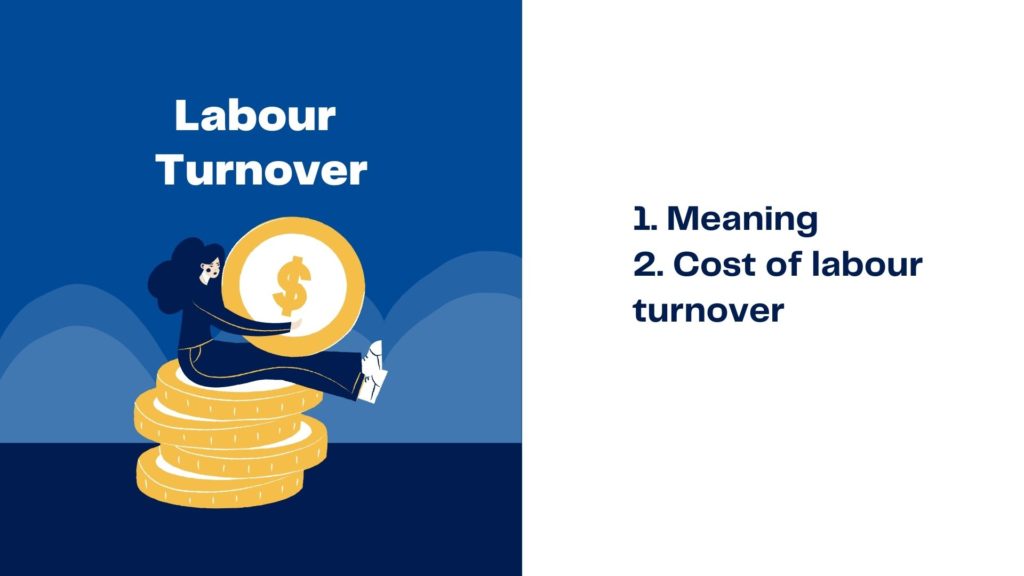Labour Turnover Meaning | Free Cost Accounting Articles
Table of Contents
Labour Turnover Meaning

Meaning
Labour turnover in an organization is the rate of exchange in the composition of labour force during a specified period measured against a suitable index. It has a perpetual existence. The working force in an organization does not remain constant. Some of the existing staff may leave, new people join the organization. This phenomenon is known as Labour Turnover.
Cost of Labour Turnover
There are two types of Labour cost that leads to high cost and lower productivity:
A) Preventive Cost
The preventive cost which includes the cost incurred to keep labour turnover at a low level.For example cost of medical services, welfare schemes and pension schemes, etc.
i) Personal administrative cost:
The firms have a personal administrative department which is entrusted with recruitment, trading and maintaining good relationship with the labour force i.e. between firms and employees.
ii) Medical Services:
The firms provided preventive and medical services to the employees and their families. In fact, the employees prefer a firm providing free medical and other services to the employees and their families. It means healthy employees are the assets of the firms who enhance the productivity of the firms.
iii) Welfare Services:
The firm provides welfare services to the employees and includes expenditure on labour welfare activities. e g. sport canteens, houses, transport, education facilities, etc.
iv) Miscellaneous Schemes:
The firms normally think for the employee’s future. Therefore firms provide pension scheme, good scales, bonus, provident fund schemes etc.
B) Replacement Cost:
Replacement Costs are the costs that arise due to high labour turnover. It refers to those costs that are associated with replacement. These costs are incurred for recruitment, training and absorption of new workers. If the work is new, it results in losses, wastages and lower productivity due to inefficiency and lack of experience to new workers. It means a company will incur very high replacement costs if labour turnover is high.
- First in First out Method (FIFO)
- Last in First out Method (LIFO)
- Simple Average Method
- Weighted Average Method
Method of Measurement of Labour Turnover
There are different methods for the measurement of Labour turnover. The methodof measuring theLabour Turnover adopted by the firmdepends upon the conception of Management and the definition of Labour turnover. Once the organization has adopted particular method, then it should be consistently followed which
enable comparisons of data from the year to year.


